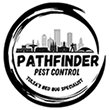Tulsa Pest Prevention: Protecting Your Home from Unwanted Intruders
Tulsa, Oklahoma, with its warm summers and mild winters, provides an ideal environment for various pests to thrive. From ants and cockroaches to rodents and termites, these unwelcome intruders can pose significant risks to both property and health. Effective pest prevention is essential to maintaining a safe and comfortable home. In this guide, we will explore the best strategies for keeping your home pest-free year-round.
Common Pests in Tulsa
Understanding the pests most commonly found in Tulsa can help homeowners take proactive measures against infestations. Some of the most prevalent pests include:
- Ants: These tiny invaders seek food and water, often forming long trails in kitchens and pantries.
- Cockroaches: Known for their resilience, cockroaches can spread bacteria and trigger allergies.
- Rodents (Mice and Rats): These pests chew through wires, walls, and insulation, posing fire hazards and health risks.
- Termites: Silent destroyers, termites cause significant structural damage by feeding on wood.
- Mosquitoes: Common during the warmer months, mosquitoes carry diseases such as West Nile virus.
- Spiders: While most are harmless, some species like the brown recluse can be dangerous.
Preventative Measures for a Pest-Free Home
1. Seal Entry Points
Pests often enter homes through small gaps, cracks, and openings. Conduct a thorough inspection of your home’s foundation, doors, windows, and vents. Use caulk, weather stripping, and mesh screens to seal potential entry points.
2. Maintain Proper Sanitation
A clean home is less attractive to pests. Follow these sanitation practices:
- Store food in airtight containers.
- Clean up spills and crumbs immediately.
- Take out the trash regularly and keep bins sealed.
- Avoid leaving pet food out overnight.
3. Manage Moisture Levels
Pests like cockroaches, termites, and mosquitoes thrive in damp environments. To reduce moisture:
- Fix leaky pipes and faucets.
- Use dehumidifiers in humid areas like basements.
- Ensure proper drainage around the home.
- Clean gutters regularly to prevent standing water.
4. Landscaping and Outdoor Maintenance
The exterior of your home plays a crucial role in pest prevention.
- Keep grass trimmed and bushes away from the house.
- Remove debris, woodpiles, and standing water.
- Store firewood at least 20 feet away from the home and off the ground.
5. Natural and Non-Toxic Pest Control
If you prefer eco-friendly methods, consider these natural solutions:
- Diatomaceous Earth (DE): A non-toxic powder that dehydrates insects like ants and cockroaches.
- Essential Oils: Peppermint, eucalyptus, and tea tree oil repel various pests.
- Vinegar Solutions: Spraying vinegar in areas where ants are present can deter them.
- Borax and Sugar: A natural bait that helps eliminate ants and cockroaches.
6. Regular Home Inspections
Scheduling annual or biannual pest inspections can help detect early signs of infestations before they become severe. Professional pest control companies can assess risks and recommend preventive treatments.
When to Call a Professional
Despite taking preventive measures, some infestations require professional intervention. Signs that you may need pest control services include:
- Recurring pest problems despite DIY efforts.
- Visible signs of structural damage (e.g., termite tunnels, gnaw marks from rodents).
- An increase in pest activity, especially in hidden areas like attics and basements.
- Unusual odors or droppings indicating a rodent infestation.
Choosing the Right Pest Control Service in Tulsa
When selecting a pest control company, consider the following:
- Experience and Reputation: Look for companies with positive reviews and extensive experience.
- Eco-Friendly Options: Many companies now offer non-toxic and pet-safe treatments.
- Licensing and Certifications: Ensure the company is licensed and follows industry standards.
- Comprehensive Services: Choose a provider that offers preventative and emergency pest control solutions.
Conclusion
Pest prevention in Tulsa requires a combination of proactive measures, proper sanitation, and professional assistance when necessary. By sealing entry points, maintaining cleanliness, and using natural repellents, you can reduce the risk of infestations. Regular inspections and prompt action against pest problems will help keep your home safe, comfortable, and pest-free year-round.
